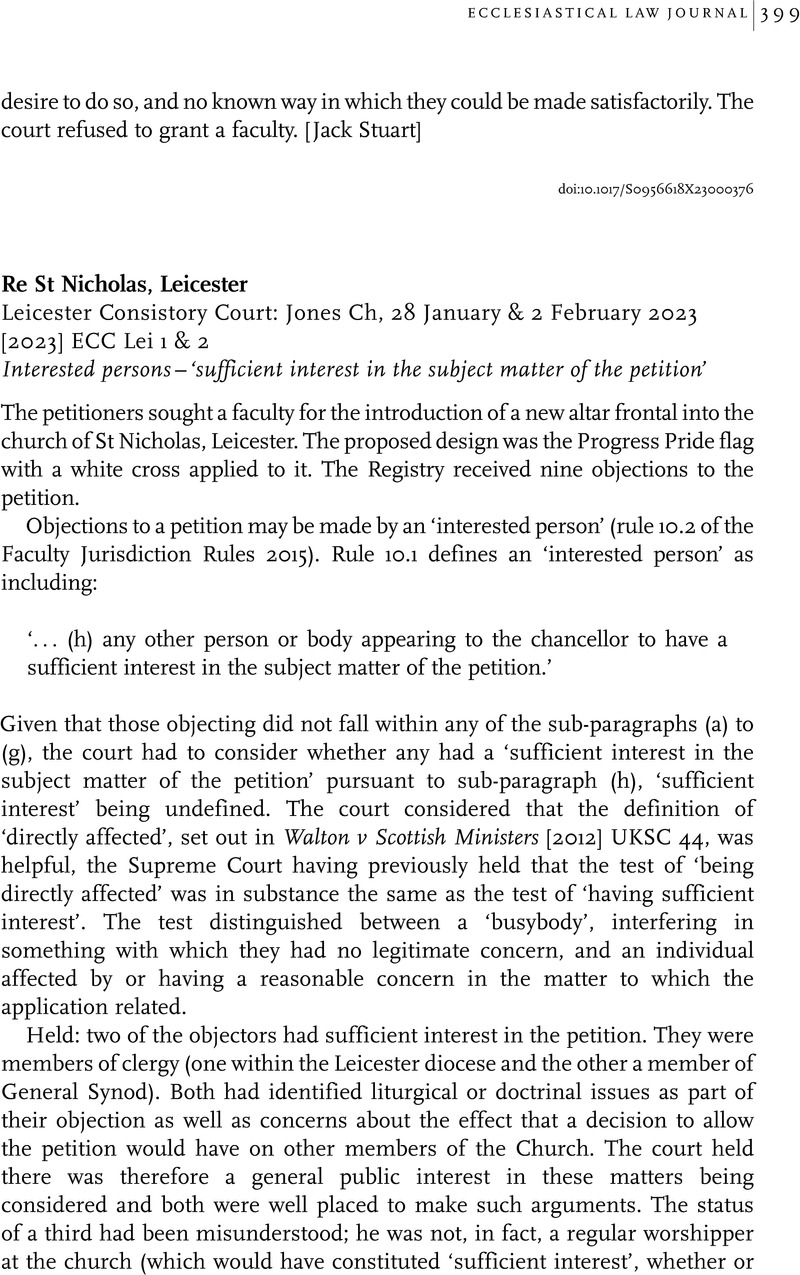No CrossRef data available.
Leicester Consistory Court: Jones Ch, 28 January & 2 February 2023[2023] ECC Lei 1 & 2Interested persons – ‘sufficient interest in the subject matter of the petition’
Published online by Cambridge University Press: 05 September 2023
